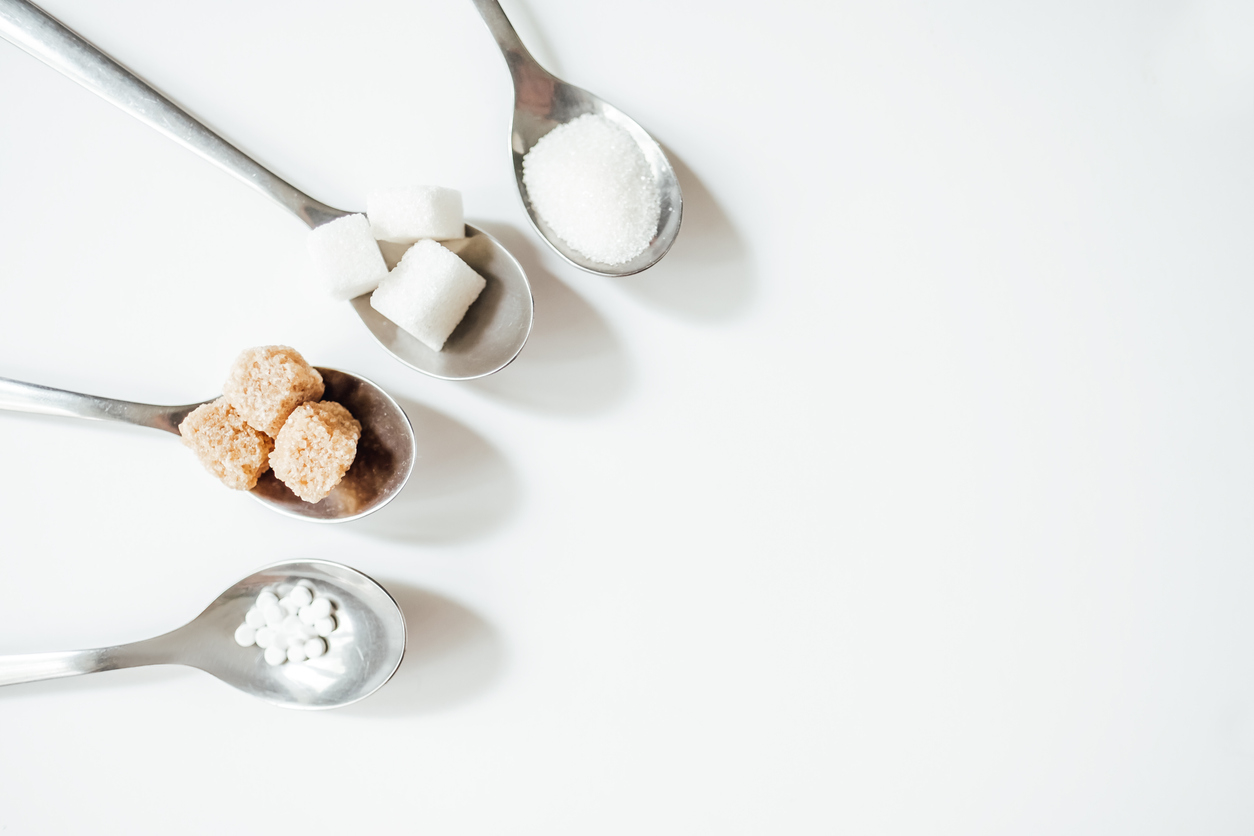Commitment + Clinical Leadership = Better Outcomes

Added Sugars: What You Should Know
Did you know the average American consumes 17 teaspoons of added sugar in a day? According to Dietary Guidelines for Americans 2020-2025, experts advise that individuals consume no more than 12 teaspoons of added sugar in a day. The American Heart Association recommends that individuals drastically cut back on added sugars to slow the obesity and heart disease epidemics.1
All foods have sugars in them, and they will either be natural or added. However, many people do not realize that manufacturers will add sugars to food and drink items to help improve their taste or make them last longer on the shelf.
Here are some facts about added sugars and what foods they may be in. We also discuss why added sugar is bad, as well as healthier alternatives for common foods that have added sugars.
What Are Added Sugars?
Added sugars are an unnatural type of sugar. This umbrella term includes any sugars or syrups that are added to foods during the preparation or processing phase. Added sugars are often disguised on the food labels and packaging by many names that you may not recognize.2
How to Spot Added Sugars
Spotting added sugars can be tricky if you don’t know what to look for. If you suspect a product has added sugars, check the nutrition label.
You will notice a line that states “total sugars,” and a line underneath that will state “added sugars.” If there are no nutrition facts on the product, check the ingredient list.
Added sugar will most likely not be stated as “sugar.” Look for words such as maltose, sucrose, or any ending in “-ose.” Some of the other common variations include:
- High fructose corn syrup
- Molasses
- Cane sugar
- Corn sweetener
- Raw sugar
- Syrup
- Fruit juice concentrate
You can check the labels of products at the grocery store that you think are healthier options at first glance. For example, fruit juices and granola bars are usually considered healthy choices, but many manufacturers will add sugars that will negate many of the health benefits you would get from the products. As you look, you may find that not all products may be as healthy as they initially appear.
Why Are Sugars Added?
There are numerous reasons sugars can be added to food products.3
- Sugar alters the flavor of foods and drinks
- Sugar can give baked goods texture and color
- Sugar helps preserve some foods
- Sugar helps fuel fermentation
- Sugar balances the acidity of certain foods
Foods Containing Added Sugars
Many foods and drinks that are consumed today contain added sugars. You may be surprised at how often sugar is added in during processing, and you may not even notice the difference between a product with and without added sugar.
Here are some examples of common items that will often have added sugars4:
- Soft drinks/soda
- Sweetened tea
- Juices
- Energy drinks
- Candy
- Desserts
- Cookies
- Ice cream
- Yogurt
- Milk
- Breakfast cereals
- Granola bars
- Sauces and dressings
- Bread
Why Are Added Sugars Bad?
Although a limited consumption of added sugars is not bad and is not always avoidable, it is advised to be aware of how much added sugar you’re consuming daily.
Your body doesn’t need added sugar to function properly because your body can make the glucose it needs by breaking down food molecules. Added sugars contain zero nutrients, and can lead to obesity and a reduction in heart health.2
Here are a few other reasons why added sugars are not beneficial:
- Added sugar can increase triglyceride levels, a type of fat in the bloodstream and fat tissue that can lead to heart disease
- Added sugar promotes tooth decay by allowing bacteria to grow, increasing the likelihood of cavities
- Foods with high levels of added sugar usually contain fewer nutrients that are beneficial to the body
Healthy Alternatives
If you’re looking for ways to decrease your consumption of added sugar, here are a few tips5:
- Slowly cut out processed foods – these are typically loaded with added sugars
- Look for recipes with less added sugars when cooking or baking
- Choose water or fruit-infused water instead of processed drinks such as soda or fruit juice
- Limit intake of candy and desserts
- Check the nutrition facts and ingredient labels on your groceries for added sugars
Learn More Today
Now that you know more about natural sugars vs added sugars, you can be more aware of what you’re consuming. Try one of the tips above to decrease the amount of added sugars you consume today.
Saber Healthcare is an organization dedicated to providing consultant services to long-term care providers. This article is for informational purposes and is not meant to be seen as professional advice. Please consult with a medical expert before relying on the information provided.
Sources
- https://www.hsph.harvard.edu/nutritionsource/carbohydrates/added-sugar-in-the-diet/.
- https://www.heart.org/en/healthy-living/healthy-eating/eat-smart/sugar/added-sugars.
- https://newsnetwork.mayoclinic.org/discussion/added-sugars-dont-get-sabotaged-by-sweeteners/
- https://www.foodnetwork.com/healthyeats/healthy-tips/2012/02/8-surprising-sources-of-sugar.
- https://familydoctor.org/added-sugar-what-you-need-to-know/.
